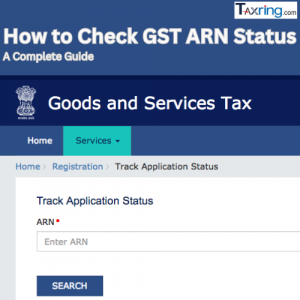
Belated Return under Section 139(4): Due Date, Penalty and How to File?
Although more than seven crore income tax returns (ITR) were filed until 7 p.m. on July 31, 2024, hundreds of thousands of people have yet to file their returns. Taxpayers who did not file their income tax returns on time, before the July 31 deadline, can file a belated return. Let's learn more about this here.
What is Belated Return u/s 139(4)?
A belated return under Section 139(4) of the Income Tax (I-T) Act is one that is filed after the deadline. Taxpayers who failed to file a return on or before July 31 may file a late return.
People can file a belated return by December 31 of the applicable assessment year.
It is important to remember, however, that taxpayers who file belated returns are not exempt from the late filing penalty.
1. Penalty: Late filing of income tax returns after July 31 incurs a ₹5,000 penalty. Small taxpayers with income below 5 lakh face a 1,000 penalty for filing their tax returns beyond the deadline.
2. Interest: When there is a tax due, taxpayers are obligated to pay a penalty of 1% each month under Section 234A of the Income Tax (I-T) Act from August 1 to the date of payment of tax.
3. Exemptions: When taxpayers file an income tax return (ITR) after July 31, they lose their entitlement to exemptions provided under the Old tax regime.
According to Chirag Chauhan, a chartered accountant based in Mumbai, missing the July 31 deadline results in the losing of benefits associated with the old tax regime since taxpayers will be switched to the new tax regime because it is the default option.
4. Loss carry forward: If you fail to file your income tax return by the deadline, you will be unable to carry forward your capital losses to future years.
Since the new tax regime is the default regime for FY 2023-24, anyone submitting an income tax return after July 31 is moved to the new tax regime, and he loses right to deductions and exemptions under sections 80C and 80D, among other things.
It should be reminded that people should not skip the verification process after submitting their income tax returns.
Eligibility for Filing a Belated Income Tax Return
There are no specific income thresholds or tax liabilities that restrict your ability to file a belated return. As long as you were required to file a return initially, you can still file a belated return even if you missed the deadline.
Filing an Income Tax Return (ITR) is mandatory under these conditions:
Income Threshold:If your total annual income exceeds Rs. 2,50,000.
Bank Transactions: If you have deposited more than Rs. 1 crore in a current account with a cooperative bank or regular bank within the financial year.
Foreign Travel Expenditure: If your spending on foreign travel exceeds Rs. 2 lakhs during the financial year.
Electricity Bill: If your total electricity bill surpasses Rs. 1 lakh.
Simply put, if you were obligated to file an ITR but did not do so, you are eligible to file a belated return. When submitting your belated return, ensure you choose Section 139(4) of the Income Tax Act to complete the process.
How to File Belated Returns?
Step 1: Log in to your account on the e-filing account
Step 2: Click on ‘e-File‘ > Choose ‘Income Tax Returns‘ and > Select ‘File Income Tax Return‘
Step 3: Select the relevant assessment year
Step 4: If you select the mode of filing as ‘Online’, follow Steps 5-10.
Step 5: Click on the ‘Start new filing' button
Step 6: Select the applicable status
Step 7: Now, select the applicable ITR form
Step 8: Click on the ‘Personal Information’ section and ensure all your personal details are correct
Step 9: Scroll down to the filing section and select 139(4)
Step 10: Fill in all your income details under various source heads and proceed to make the tax payment.
Offline Method
Download and use the Offline ITR Preparation Utility to complete the ITR. Once complete, upload the.json file and go to verification.
How to Handle Missed Tax Returns for FY 2023-24
If you missed the original deadline to file your tax return, you can still submit a belated return up until December 31 of the assessment year. Should you miss this extended deadline due to valid reasons, you have the option to request a condonation of delay from the income tax authorities.
To request an extension, write to the Income Tax Commissioner or the designated authority. Clearly explain why you missed the deadline. Your request may be granted if:
- Your claim is accurate and truthful.
- You demonstrate genuine hardship.
- You are due a refund from excess tax deductions, TDS, advance tax, or self-assessment tax.
- No other individual can assess your tax under the Income Tax Act.
If you have outstanding tax for FY 2023-24, ensure you pay it along with any applicable interest under Sections 234A, 234B, or 234C, even if you are unable to file the return on time.
For those who have paid their taxes but missed the return filing, you cannot file a return or request condonation of delay. The income tax department may issue a notice under Section 271F for non-filing, potentially resulting in a penalty of up to Rs. 5,000. If you have a valid reason for the delay and the officer is satisfied, the penalty may be waived.
Failure to file returns can lead to legal actions by the income tax department, including notices, penalties, and in severe cases, imprisonment for up to seven years.
If you receive a notice, respond promptly through the income tax e-filing portal and file your return as required.
For under-reported income, a penalty of up to 200% of the tax payable may be imposed. However, if you have paid the tax with interest post-deadline but have under-reported income, the assessing officer might waive the penalty.
Although there are alternatives if you miss the deadline, it's advisable to file your return by July 31 of the assessment year. For instance, file your ITR by July 31, 2024, for FY 2023-24.
Steps to Take If You Receive a Late Payment Notice
If the Income Tax Department sends you a notice regarding returns overdue by more than two financial years, follow these steps to address the issue:
1. Prepare Your Returns: Visit Taxring to prepare your overdue returns. Complete the return filing process on the platform.
2. Submit Your Returns: Print the prepared returns and submit them to the Income Tax office in your designated ward.
Typically, taxpayers respond to such notices by filing the outstanding returns.
Important Considerations:
No Revisions for Delayed Returns:Returns filed late cannot be revised. However, from FY 2016-17 onward, you can revise a belated return if necessary.
Loss Carry Forward: Certain losses from previous years cannot be carried forward if you did not file returns for those years. The notable exception is losses from house property, which can be carried forward even if you file your return late.
By following these steps and understanding these rules, you can manage and address any issues related to overdue returns effectively.




